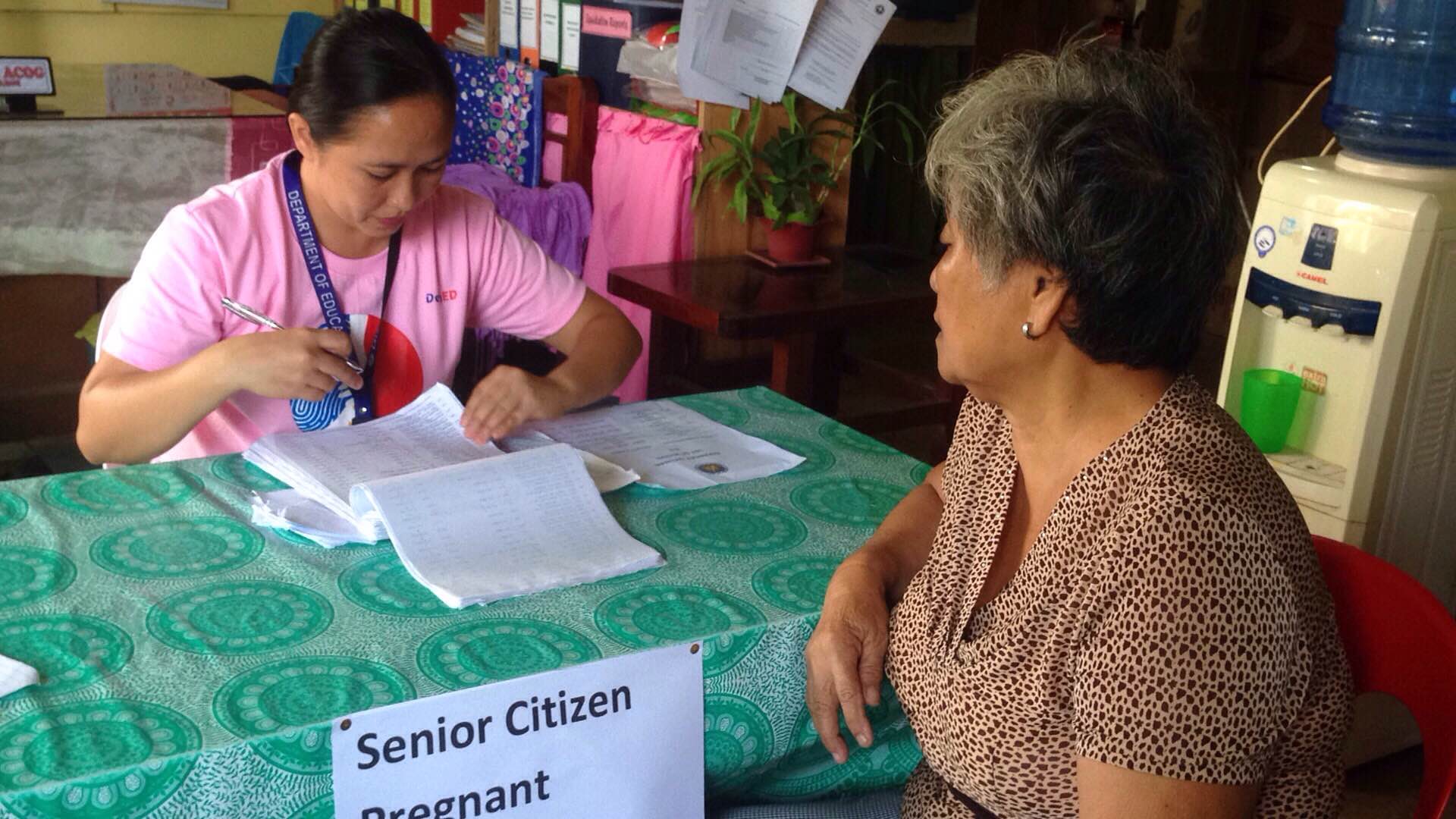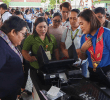
Teacher Janet Bangot, a support staff in Tacunan Elementary School, assists a senior citizen voter in finding her polling precinct during Monday’s elections. (Zea Io Ming C. Capistrano/davaotoday.com)
DAVAO CITY— In some polling precincts here, there were no available special precincts for senior citizens, persons with disability (PWD) and pregnant women, with some of them having to vote at the second floor of the polling precincts.
While lacking special precincts, the Commission of Elections (Comelec) provided special lanes, such as those found at the Bolton Elementary school and Don Cesario Villa-Abrille Elementary School here.
Jumshali Rosezain S. Lupon, (BEI)- support staff said “(W)e don’t have special precincts for the seniors since there are only few who were registered and had biometrics.”
He said that the express lanes are located mostly outside the precinct rooms with chairs provided for the special voters. The support staff also provided waiting rooms for those who didn’t want to wait outside.
In Tacunan Elementary School, teacher Janet Bangot, a support staff was assisting senior citizens and pregnant women inside the office of the principal.
“But for special voters who would go directly to polling precincts, the BEIs are already oriented that they should prioritize senior citizens, pregnant women and PWD,” she said.
Ramil Morales National Citizens’ Movement for Free Elections (Namfrel) volunteer assigned in Cesario Villa-Abrille elementary school said that he was disappointed because there were some senior citizens who were not prioritized.
“My cousin volunteered himself to stand in the long line for our grandmother,” said.
He also reported that even if they have separate lanes, there were some senior citizens, PWDs and pregnant women who were assigned on the precinct that were located at the second floor.
“Especially for the PWDs, they were asked to go up. It was a burden for them so they should have there own precinct that should be accessible to them.”
Comelec general instructions
Four days before the elections, the Comelec released a memorandum regarding the implementation of Comelec Resolution 10108: General Instructions on Voting by Persons with Disability and Senior Citizen. The memorandum provides guidelines for the establishment of the Emergency Accessible Polling Places (EAPPs) specifically in Multi-level Voting Centers.
“Funding for the EAPP will be charged to the mobilization funds subject to reimbursement and audit rules,” the memo said.
“In case of unavailability of a room located at the ground floor for an EAPP, the Election Officer is allowed to rent a makeshift tent, seats and desks for this purpose,” it added.
A maximum of three EAPP support staff is also allowed in each voting center.
Out of the Philippines 54,363,844 registered voters, 6,695,251 are senior citizens and 318,013 are PWDs.
Smooth voting
Clarita Loquitan, 66, and a resident of Barangay 76- A Bucana here said that the process of the election was “just fine”.
She said that just like before, she was able to vote fast since she was escorted and prioritized on the line with the help of an election assistant.
“It was easy, I didn’t need assistance while I was voting. They (election assistants) only gave me the number of my precinct then I proceeded there,” Loquitan.
Bebe Fayloga also a senior citizen and a registered voter of Bolton Elementary School said that she did not encounter any problem while voting.
“There were no hindrance during the process of voting, although it was hard to read since the letters were small,” Fayloga said. (davaotoday.com)










